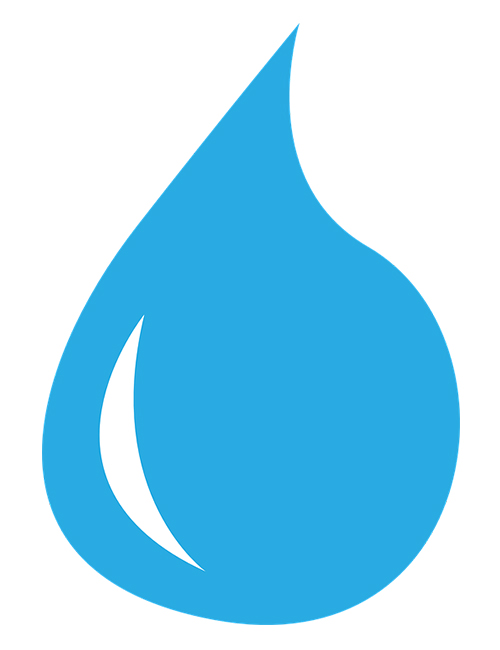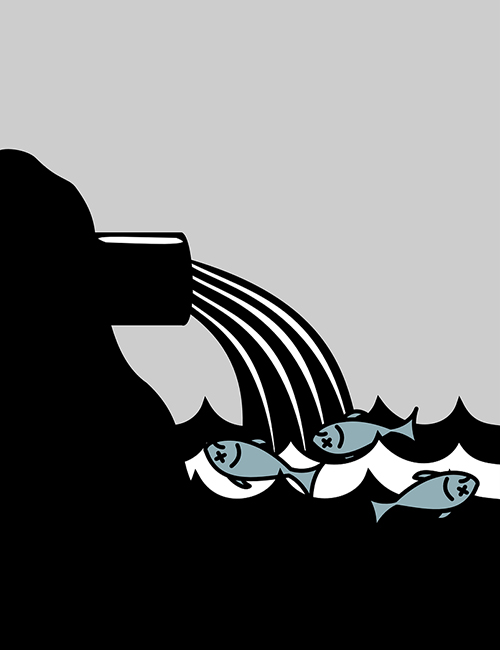
- The seas, ocean, rivers, lakes etc form the hydrosphere.
- 75 % of earth’s surface is covered with water.
- Water exists in these three forms: solid (snow), liquid (water) and gaseous (water vapour).
- Water is an important medium for all the life processes. Human beings depend on water for drinking, cooking, cleaning, agriculture, transportation, hydropower etc.
- Water acts as a universal solvent and gases such as oxygen, nitrogen, carbon dioxide and solids such as salts get readily dissolved with water.
- There are two types of liquid water mainly- salt, and freshwater.
- Freshwater is obtained from rainwater, surface water and ground water.
- Water is crucial for the survival of humans, plants, animals and other living organisms.
- Water helps in all major functions of the body such as circulation, excretion, absorption, nerve conduction, respiration etc. Water forms a component of the blood, lymph and the fluid in the brain. Water also helps the intestine to absorb food, which is then carried by blood, lymph and supplied to all organs and tissues. Water collects waste from the cells and tissues of the body and carries it to the kidneys, skin and lungs for excretion. Excess heat from the body is released in the form of sweat and also by respiration.
- Plants depend on water for nutrition, growth and formation of food.
- Water is important for plants, as it helps them in the process of photosynthesis.
- Water is supports the movement of nutrients and other substances in plants.
- Seeds can germinate only in the presence of water.
- Water helps in the loss of heat from plants through the process of transpiration.
- Water is required for drinking, cooking, cleaning, agriculture, transportation, hydropower etc.

- Industrial waste dumped into water bodies cause chemical imbalance in water, leading to water pollution.
- Use of insecticides, pesticides and chemicals used for agricultural purposes contaminate the ground water, as well as the nearby water bodies. This leads to eutrophication, which blocks sunlight from entering inside and reduces oxygen values in the water causing an inhabitable environment.
- ‘Oil Spills’ is another cause of water pollution. Oil is lighter than water and floats on water forming a layer blocking sunlight. Oil spills are harmful for fish, birds and sea otters and other aquatic life.
- Emissions from industries, power plants, and manufacturing activities release high levels of carbon monoxide, organic compounds, and chemicals into the air.
- Household waste and sewage dumped into the sea and water bodies causes water pollution and also diseases.
- Leakage from septic tanks, and other underground storage and tube leakages is another cause for water pollution. Each time solid waste is flushed down the toilet, it goes into this tank, where the solid part is separated from the liquid part. When the solids are broken into liquids , it can escape into the soil and nearby water bodies. Liquid products such as petroleum products stored in metal and steel tubes underground can contaminate the soil, if there is a leak in storage container due to rust.
- Groundwater gets contaminated due to the use of pesticides, fertilisers and chemicals and causes serious health hazards to the wildlife in aquatic ecosystems such as diseases, birth defects, and reproductive failure. These chemical and pesticides accumulate in fish and other sea animals that are later consumed by humans, and cause health hazards for human beings. Plastic bags are a major threat for the aquatic animals.
- Sewage, fertiliser and agricultural run-off lead to increased growth of algae, which leads to eutrophication.
- Water pollution also causes floods, as it leads to the accumulation of solid waste and soil erosion in streams and rivers.
- Since oil does not dissolve in water, it causes suffocation in fish and other aquatic animals.


 Biodiversity
Biodiversity